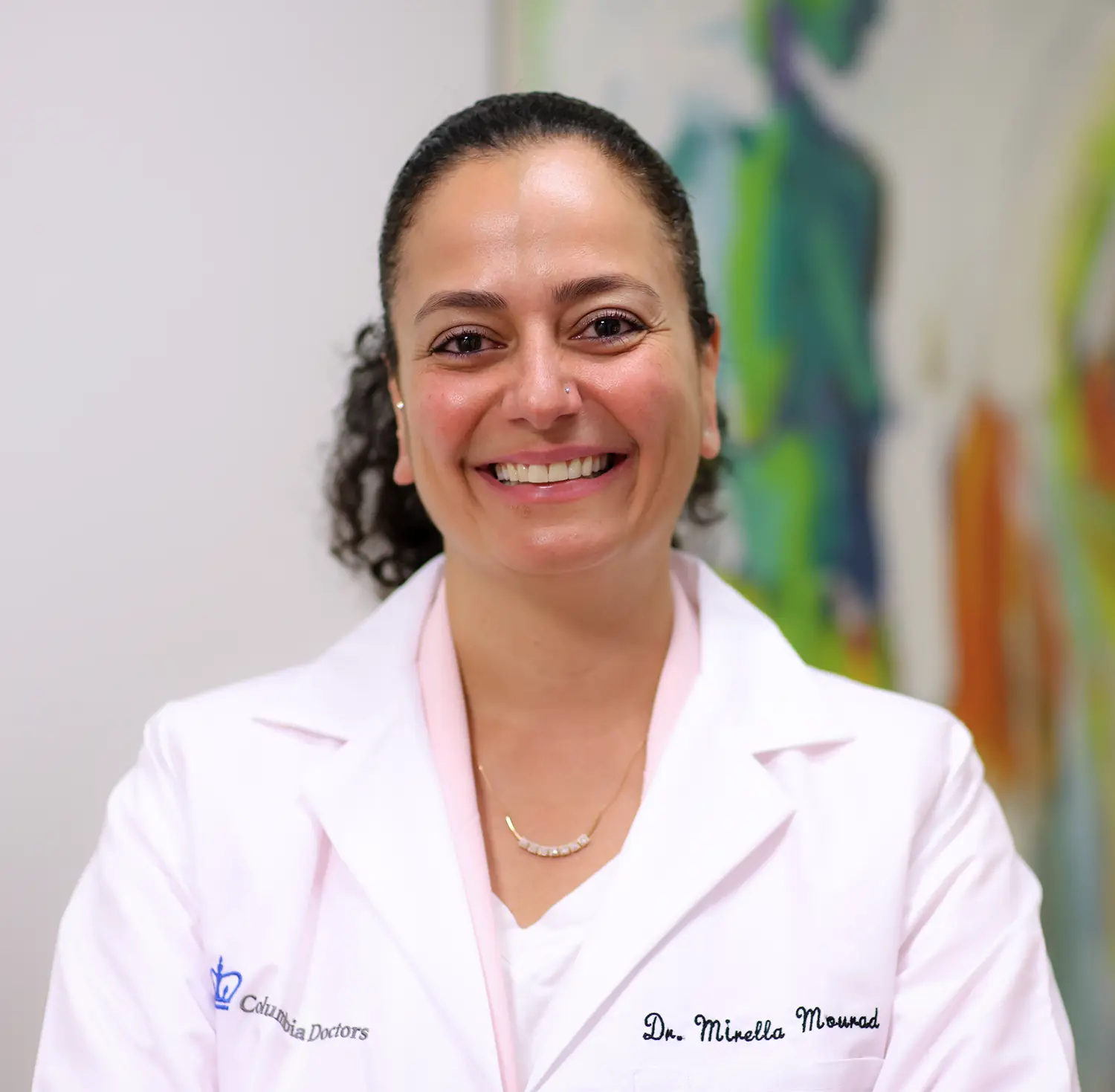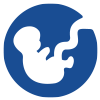MATERNAL-FETAL MEDICINE
Improving Outcomes for Patients with Placenta Accreta Spectrum Disorder
lacenta accreta spectrum (PAS) disorder is a leading cause of intrapartum maternal mortality and morbidity. It can lead to life-threatening hemorrhage and often requires a life-saving cesarean hysterectomy. The “spectrum” in PAS refers to three specific types of abnormal placenta implantation – placenta accreta, placenta increta, and placenta percreta – all with multiple risk factors, including a history of cesarean delivery, prior uterine surgery, in vitro fertilization, and advanced maternal age. Over the past ten years, rates of PAS have steadily increased, making early diagnosis and referral to appropriate care centers essential.

Maternal Fetal Medicine
Gynecologic Oncology
Radiology
Obstetric Anesthesia
Urology
Critical Care
Neonatal Critical Care
Critical Care Nursing
Dr. Mourad and Dr. Khoury Collado, both born in Lebanon, discuss cases with each other using a mix of English, Arabic, and French. Their passion for caring for patients affected by PAS is palpable and, when combined together, feels inexhaustible.
Since 2018, the program’s dedicated multidisciplinary team has managed many deliveries with PAS. In 2023, the team estimates that they will care for over 50 patients with PAS, double the number that they cared for in 2022. Part of the reason for this expected increase may be treatment outcomes. Under Dr. Mourad and Dr. Khoury Collado’s leadership, the team is achieving excellent results on key outcome metrics, such as injury to the urinary tract and rates of blood transfusion. In addition, as the experience of the PAS team has increased, the majority of these surgeries are currently performed by a transverse abdominal incision, using the previous cesarean delivery incision.
Key areas of focus for Dr. Mourad and Dr. Khoury Collado include developing techniques to retain the uterus and only remove the placenta, thereby preserving the uterus, and understanding the impact of the diagnosis and surgery on mental health during pregnancy and postpartum.








